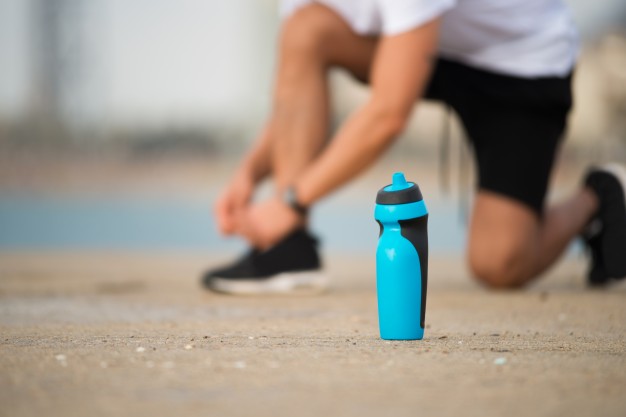The loss of fluid and the decrease in carbohydrate stores in athletes leads yo fatigue and adversely affect performance. Various recommendations regarding fluid intake and carbohydrate consumption during exercise have been developed to maintain performance. Based on these recommendations, the concept of sports drink was born with the production of a beverage containing sugar, water and electrolytes in order to increase the success of a school team at Florida University in the 1960s. This story is the origin story of Gatorade, named after the university’s American Football Team Gators.
After the production of Gatorade, sports drinks, which became widespread especially in the 1990s, are preferred for both to replace the lost fluid and as a source of carbohydrates and electrolytes. Sports drinks are the products that contain carbohydrates (6-8 g/100 ml) and electrolytes such as sodium, potassium, calcium, and magnesium.
Sports drinks are categorized according to their carbohydrate content:
- Hypotonic Sports Drinks: Products containing less than 4% carbohydrates. It is preferred in branches such as jockey where carbohydrate requirement is low and fluid loss is high.
- Isotonic Sports Drinks: It contains 4-8% carbohydrate. Since it has an osmolarity closer to blood osmolarity, it is used faster by the body. Although it is preferred in many branches by a variety of sports branches from endurance sports to team sports, it is especially used during exercises longer than 1 hour.
- Hypertonic Sports Drinks: These are products with a carbohydrate content of more than 8%. Since it leaves the stomach late, it is not preferred during exercise. It is used to replenish carbohydrate stores after ultra-endurance sports where glycogen stores are depleted.
Sports drinks have more advantages over other beverages thanks to their carbohydrates, sodium and various electrolytes. In addition to replacing electrolytes lost during exercise, the sodium in it also helps the absorption of fluids and facilitates the consumption of the beverage. Because of all these benefits, it is recommended to include isotonic sports drinks in the nutrition plans of athletes, especially during exercises exceeding 1 hour.
Finally, it should be noted that energy drinks are not considered sports drinks. Since energy drinks contain more carbohydrates (12-14%) than sports drinks, they may result in absorption problems and thus reduce the positive effects of carbohydrate on exercise performance. In addition, it should be remembered that energy drinks, unlike sports drinks, do not have any benefit to health and performance due to their caffeine content and the addition of some non-evidence-based ergogenic aid products.
If you want to get more detailed information about sports drinks; You can take a look at our review entitled “The Use of Sports and Energy Drinks in Different Sports and Their Effects on Performance” published in April 2020.
References
- Turnagöl, H., Aktitiz, S., Korur, D. C., & Kuru D. (2020). Use of Sports and Energy Drinks in Different Sports and Their Effects on Performance. Journal of Sport Sciences, 31 (1), 29-44. (Turkish with an abstract in English)
